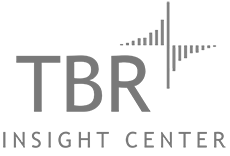Quick Quantum Quips: Vendors seek ways to increase quantum accessibility
Welcome to TBR’s monthly newsletter on the quantum computing market: Quick Quantum Quips (Q3). This market changes rapidly, and the hype can often distract from the realities of the actual technological developments. This newsletter keeps the community up to date on recent announcements while stripping away the hype around developments.
For more details, reach out to Stephanie Long or Geoff Woollacott to set up a time to chat.
February 2021 Developments
As the power of quantum computing becomes more widely understood, accelerating access to quantum technology and quantum-like capabilities has become a key focus of vendors in the industry worldwide. The COVID-19 vaccine has highlighted the value quantum computing can have in accelerating drug discovery, creation, manufacture and distribution once the technology can be fully harnessed. Additionally, direct application of quantum computing exists in climate change, a top global concern, and sustainability, a focus of major corporations.
- Quantum Computing Inc. (QCI) unveiled Qatalyst, a quantum application accelerator. The aim of this software-centric offering is to leverage quantum principles with classically trained computer scientists to harness the power of quantum technologies for complex optimization problems such as supply chain and delivery route optimization by bypassing QPUs and leveraging APIs in their place. While Qatalyst is likely to accelerate near-term access to quantum computing capabilities, TBR believes advancements in other quantum computing technologies will surpass it in the long term. Qatalyst and related QPU and CPU resources are all available via the cloud and do not require on-premises resources to access.
- Cambridge Quantum Computing (CQC) partnered with CrownBio and JSR Life Sciences on cancer treatment research. The companies will leverage CQC’s quantum capabilities and CrownBio and JSR’s years of cancer-related research and data to identify multigene biomarkers for cancer treatment drug discovery. It is generally accepted throughout the quantum community that drug discovery will be one of the initial use cases for quantum systems that will be able to achieve economic advantage due to the costly and laborious techniques currently employed in drug discovery. Quantum computing could accelerate this process and reduce the amount of wet-lab research necessary to bring new drugs to market.
- IonQ is in early talks to merge with public company DMYT Technology Group Inc., which is a special purpose acquisition company (SPAC) created for the purpose of acquiring an existing company. The merger would enable IonQ to become a public company without going through a lengthy initial public offering. This would be the first U.S.-based pure play quantum computing vendor to go public through a SPAC if it comes to fruition. IonQ is also one of the leading vendors in the trapped ion quantum architecture space, and an IPO would provide the vendor with access to additional capital, which could accelerate its innovation efforts.
- D-Wave expanded the availability of its Leap quantum cloud service to Singapore, providing users in the country with real-time access to D-Wave’s Advantage quantum computer, hybrid quantum/classical solvers, and the Quantum Application Environment (QAE).
- Microsoft has acknowledged the potential positive impact quantum computing could have on energy, including reducing emissions and power consumption. Further, the research enabled by quantum technologies could lead to discoveries around cleaner energy sources and more efficient electrical power systems. TBR notes there has been an industrywide increase in focus on sustainability so while these acknowledgements by Microsoft of the environmental benefits of quantum computing are not unique, they mesh well with industrywide marketing efforts.
If you would like more detailed information around the quantum computing market, please inquire about TBR’s Quantum Computing Market Landscape, a semiannual deep dive into the quantum computing market. Our latest version, published in December, focuses on the software layer of quantum systems.





Leave a Reply
Want to join the discussion?Feel free to contribute!